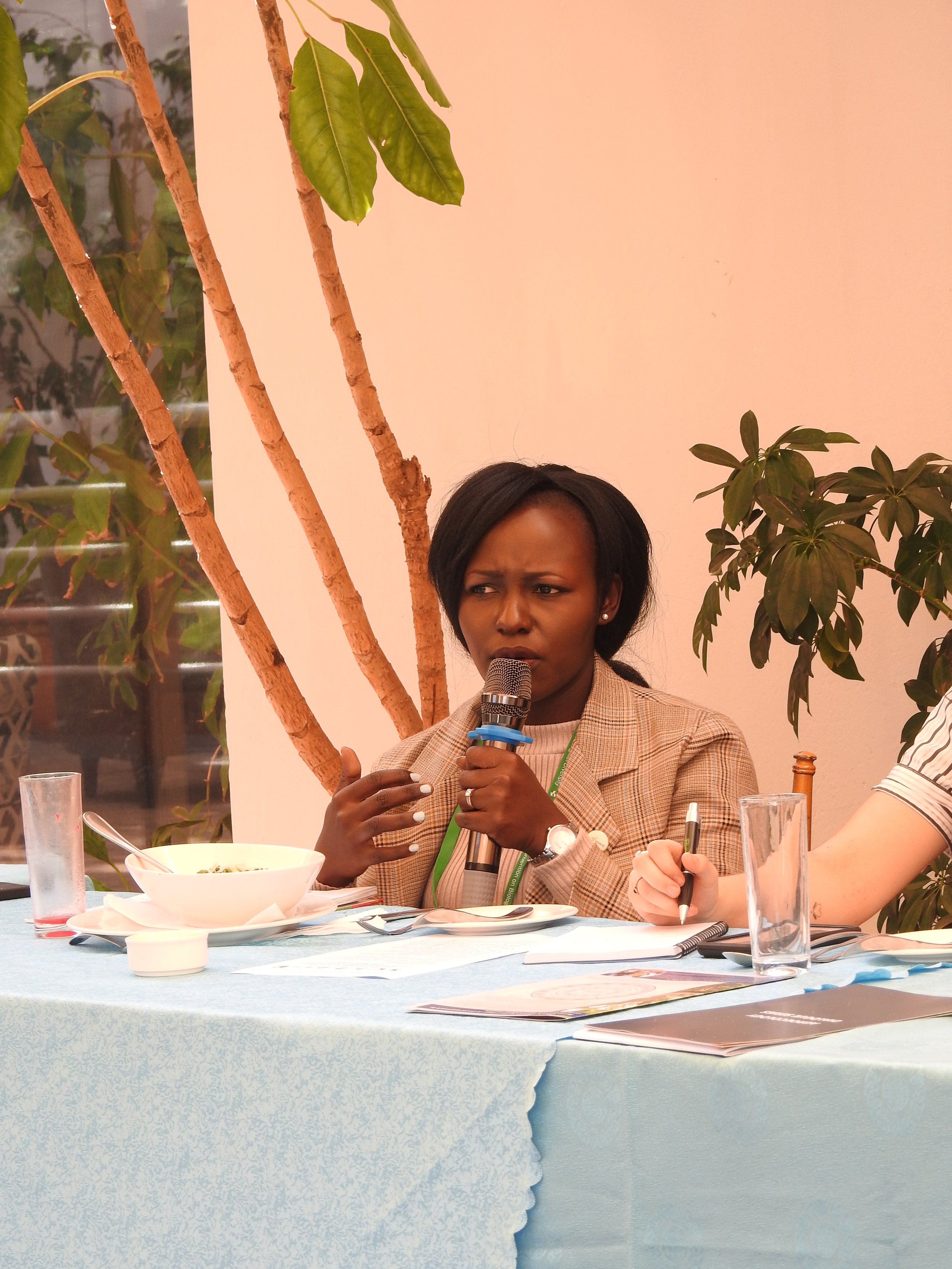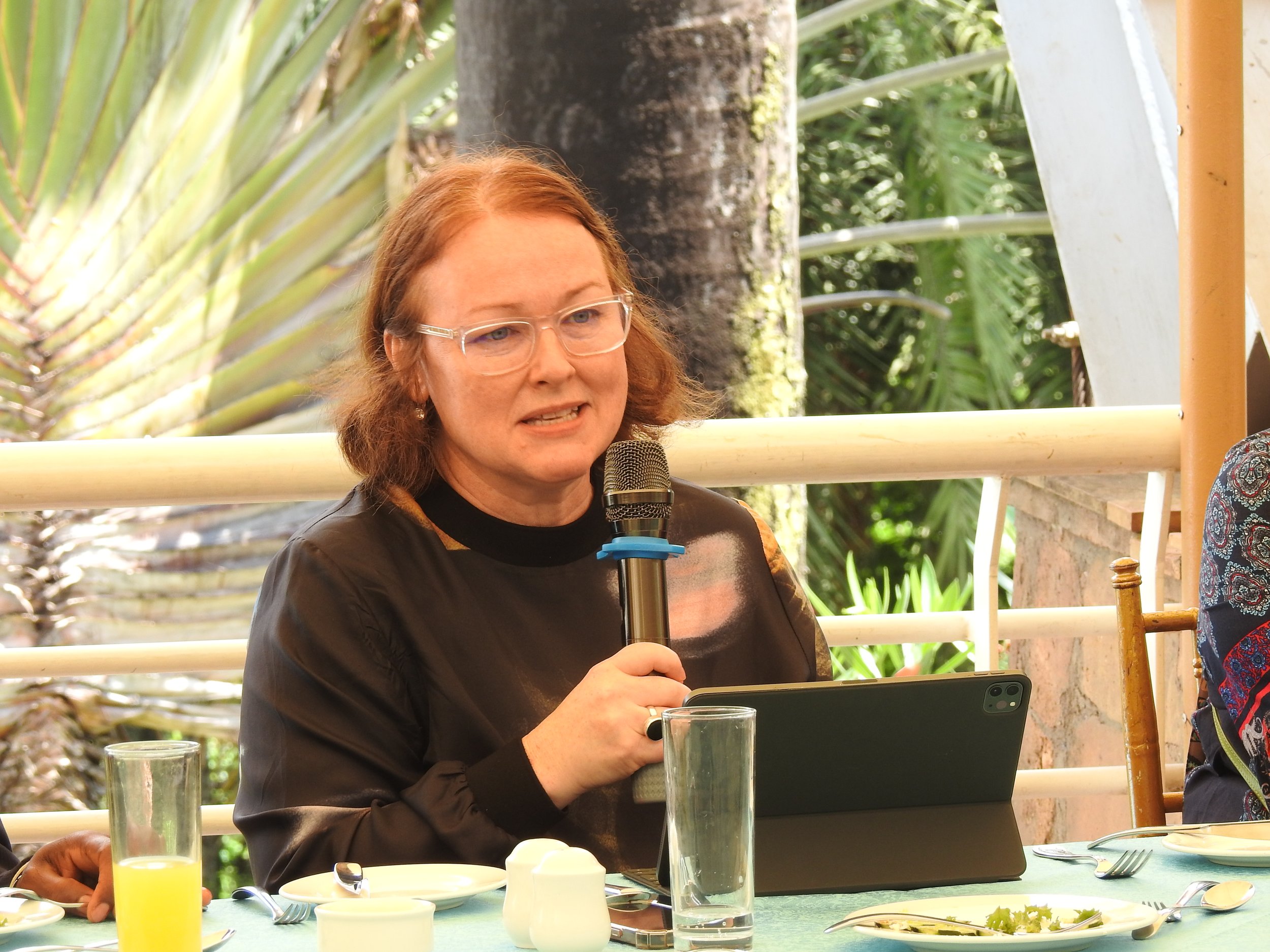CA4SH Co-Hosted a Roundtable Luncheon on the Side of the CBD SBSTTA26
“Achieving the 1.5°C target, halting biodiversity loss, and ensuring food security require transforming our food systems and identifying synergies between the Rio Conventions.”
Martina Fleckenstein, Global Policy Manager on Food Practice, WWF International
Background
In 2024, the UN Conventions of Parties (COP) on Climate (UNFCCC), Drought and Desertification (UNCCD), and Biodiversity (UNCBD) will all take place. While these Conventions have many intersections and synergies, collaborative actions across sectors are needed to achieve the goals set out during the Convention proceedings.
To bridge actions between the UNFCCC and UNCBD, CA4SH and partners WWF, UNEP, the Alliance of Bioversity and CIAT, CGIAR, CIFOR-ICRAF, Biovision and the New Zealand Ministry of Foreign Affairs and Trade co-hosted a roundtable luncheon on the sidelines of the UNCBD Twenty-sixth meeting of the Subsidiary Body on Scientific, Technical and Technological Advice (STTA26). The luncheon was called Food Systems Transformation & Land Use Change: Unlocking the potential for enhanced synergies and finance through NBSPAs and NDCs, where attendees joined a group discussion on how aligning the UNFCCC and UNCBD could unlock and enhance synergies and scale-up financial support at the national level to enable food systems transformation. Central to the discussion was Target 18 of the CBD, which calls for the repurposing and reforming of (agricultural) subsidies and incentives.
According to the UNCCD Global Land Outlook, food systems account for 80% of deforestation, 29% of greenhouse gas emissions, and the leading share of biodiversity loss. Hence, commodity-driven deforestation and the conversion of other critical ecosystems cannot be treated in isolation because they sit at the heart of the challenges facing global food systems.
Upcoming policy opportunities are updates to the National Biodiversity Strategies and Action Plans (NBSAPs) at CBD COP16, and to the Nationally Determined Contributions (NDCs) by UNFCCC COP30. These discussions present a unique opportunity to break these silos, connect the dots and enhance synergies among the agriculture, food systems, land use and biodiversity agendas. The NDC’s guidance for agriculture and food systems (FoodforwardNDCs) offers range of policy options to enhance NDC for food systems. Avenues to unlock greater synergistic collaboration include the mitigation and adaptation agendas, and strategic targets under the Global Biodiversity Framework. To implement the targets and commitments, adequate and scaled-up financial resources are required. As public budgets are drained, reforming and repurposing harmful (agricultural) subsidies to rechannel public finance and enable a sustainable and just rural food systems transformation is essential; Target 18 of the Global Biodiversity Framework holds great potential.
Objectives of the Roundtable Luncheon
Explore opportunities for better alignment of food systems, agriculture, and forests, and their crucial role for biodiversity, climate, livelihood, health, food and nutrition security.
Discuss how a more synergistic approach of updating both NBSAPs and NDCs can help break these silos and lead to a food system transformation that builds on biodiversity, produces conversion-free and enables a just rural transition.
Discuss opportunities and challenges of repurposing agricultural subsidies (Target 18) to enable a just, biodiversity-friendly, and conversion-free food system transformation:
What are the entry points, barriers, and key actors?
What are useful alliances and initiatives going forward?
Identify next steps and joint activities on the way to CBD COP 16 and UNFCCC COP 29.
Key Takeaways from the Discussion
Multistakeholder approaches are needed to achieve win-win outcomes across sectors and landscapes
Enhance public-private partnerships
We need to integrate agrobiodiversity and behaviour change to promote locally-led and context-relevant solutions that don’t rely on single-variety monocrops
Enhanced collaboration can help redesign subsidies that are farmer-focused and promote research and technology that meets their needs
National Biodiversity Strategies and Action Plans (NBSAPs) need to be robust, have excellent monitoring frameworks, and address corruption to maintain excellent reporting frameworks
Conduct stakeholder mapping to see where the awareness gaps are; who still needs to be convinced?
Focus on policy action that is multi-sectoral and equity-centred
“These targets need to be evidence-based and that evidence needs to INFORM decision making.”



































































































